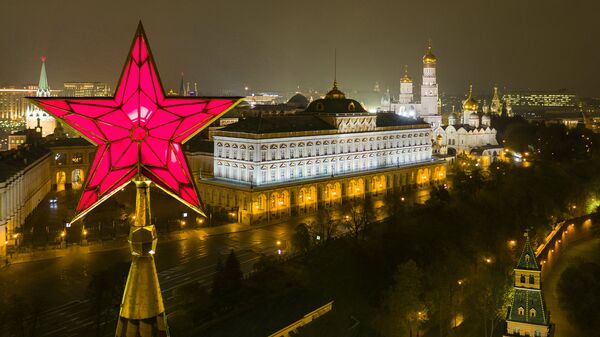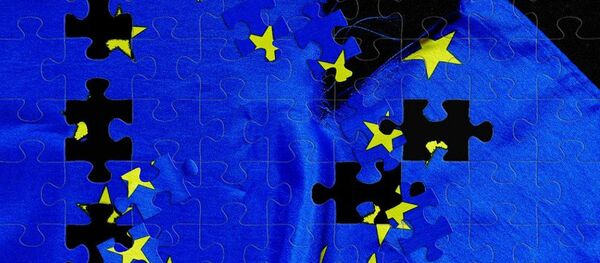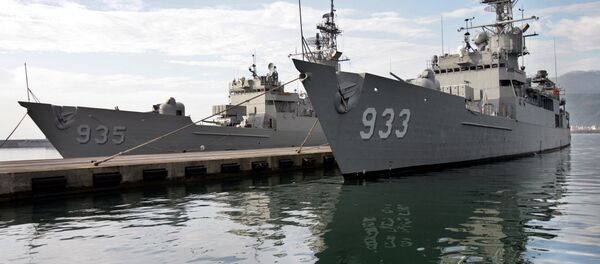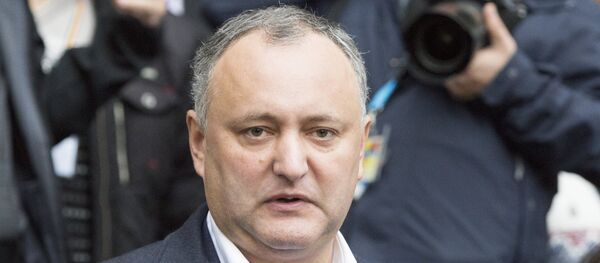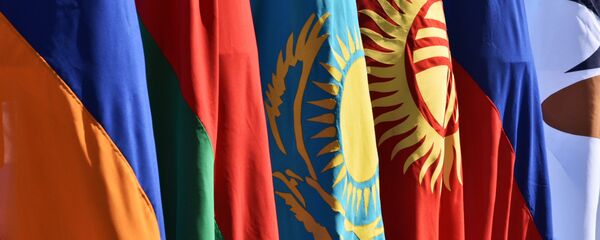Stratfor's latest report explains that a new president in the White House, combined with the crisis in the European Union, will help relieve Western pressure on the Kremlin. This, in turn, will result in countries of the former USSR "reassessing their relationship" with both Moscow and the Western powers.
However, the report also says that Russia's "standoff with the West" will continue to "endure and evolve" in the new year.
The past three years haven't been easy for Moscow, Stratfor says, with Ukraine, Moldova and Georgia tugged into the Western orbit of the EU and NATO, while the Western Alliance persistently expanded its military presence, including the first elements of a missile defense shield, along Russian borders. Sanctions over the crisis in Ukraine, combined with falling energy prices, helped precipitate a recession in Russia, while Moscow's involvement in Syria "has so far failed to yield the grand bargain that Moscow was hoping for."
In any case, Stratfor noted that "2017 could herald a new phase for Russia's standoff with the West." Specifically, its analysis explains, "mounting tensions have exposed…cracks in the united Western front against Russia," with the Brexit vote 'revealing deep rifts' in the EU, with Donald Trump's election victory portending the prospects of a radical shift in US policy toward Moscow.
In 2017, France, the Netherlands, Germany and possibly Italy will hold elections, with populist, Eurosceptical candidates on the rise in nearly all of these countries. According to Stratfor, their victory may lead to a further split in the anti-Russia front. Some of these candidates, including Marine Le Pen in France, have said openly that they would like to lift the "ineffective" and "counterproductive" sanctions against Moscow, and resume cooperation.
More dubiously, the think tank argues that Russian "propaganda campaigns, cyberattacks and political maneuvering," which have already helped to "exploit and in some cases influence the dynamics" of Western policy, may be intensified in 2017.
It's unclear what "propaganda campaigns" the think tank is referring to. If it's speaking about Russia's foreign-language broadcasters and news websites, the fact that these sources provide an alternative perspective on world events does not automatically make them dispensers of 'propaganda'. As for the tired claim of Russian "cyberattacks," that argument has been so overused by the outgoing US administration and the Democratic Party that it has been turned into a meme.
Whatever the case may be, Stratfor argues that the cracks in unity among Western countries' anti-Russian vector will also "enable Russia to recoup some of its influence in the former Soviet periphery."
Stratfor doesn't mention it, but Ukrainian and Georgian "pragmatism" may also come down to the fact that these countries' sponsors in Washington and Brussels may be more reluctant to help prop them up in the new year, for pragmatic reasons in the case of the US, and for economic ones in the case of the EU.
"Moscow will probably also gain influence in states such as Azerbaijan and Uzbekistan," the think tank says, pointing to the recent signing of agreements on military cooperation with both countries. "Moscow will also try to assume a more active role in ensuring Central Asia's security in the coming year, as the historically stable region reckons with a variety of challenges." The latter point is hard to argue, given Russia's battle with terrorism, and Central Asia's vulnerability to that threat.
Ultimately, the think tank ends on a sour note, saying that "Russia's comeback is far from guaranteed." For one thing, it says, the US and NATO are "unlikely to withdraw from the European borderlands completely," meaning that "Russia will not have free reign over Eurasia." The think tank doesn't clarify what such "free reign" for Moscow would actually imply.
In addition, Stratfor says that diminished support from Washington and Brussels could see Ukraine and Georgia trying to build their own security or economic blocs, possibly with countries such as Poland or Turkey. And there will continue to be forces in the US and Europe who will contest the removal of anti-Russian sanctions.
"These factors will keep Russia from taking full advantage of the turmoil and uncertainty in the West as their standoff stretches into a new year. Nonetheless, the country could make significant headway in its negotiations with the West and its former sphere of influence in 2017," the think tank concludes. All in all, Stratfor's analysis is a dramatic reversal from the one it published just last year, where the intelligence firm absurdly predicted Russia's imminent collapse.
